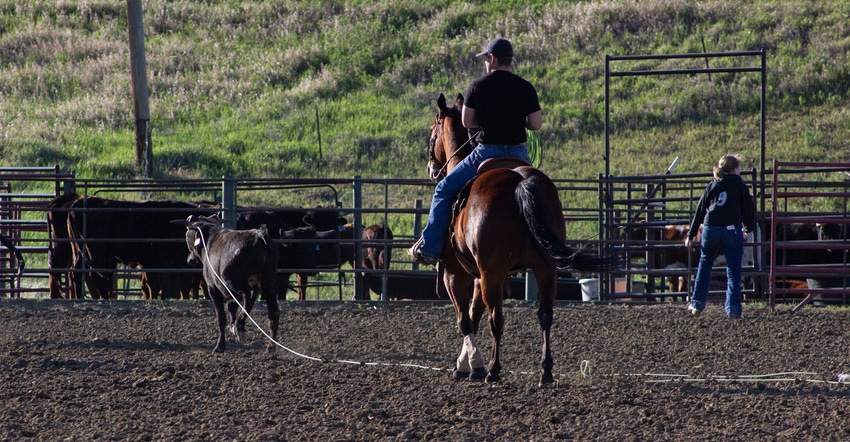July 1, 2021

For much of my life, I always stuck to what I was good at. I did this on purpose, because who likes to do things poorly? Whether I was practicing a piece for an upcoming cello performance or studying up on terminology before walking into the showmanship ring, I gave it my all.
After my time at North Dakota State University, I’m very aware that math and chemistry are not my strong suits, so I stick to photography and writing. I knew that I couldn’t stay in an English saddle for horse shows, so I stuck with riding western. I’ve been lucky enough to have many opportunities to try new hobbies in my life, and so I stuck with the things I was good at.
Enter 2020, when I decided to start rodeo and breakaway roping. My significant other and his entire family all rope, ride and rodeo. Our weekends are spent on the road traveling with friends, while they compete for that fast time check. The weekdays are for roping steers and calves in the practice pen, working and exercising horses, and roping the steer dummy.
After about a year of going along to rodeos and being “bleacher support,” I finally decided that I wanted to get in on the action myself. I had shown horses before and knew how to ride, so learning to breakaway would just mean I had to learn how to catch a calf. Right?
For those unfamiliar, breakaway roping is when a calf is loaded into a roping chute and a rider waits in the corner of the box until the gate is opened. The objective is to run after the calf and throw the rope around the calf’s neck. When the loop catches the calf, the roper stops their horse, which pulls that rope tight and the rope “breaks off” the saddle that it’s attached to with a small string. As with most rodeo events, the fastest time wins.
We all start somewhere
So, I started with the basics, which was learning how to swing a rope and trying to catch the calf dummy. I quickly realized I wasn’t very good at it. As someone who gets frustrated when I’m not an “instant professional,” I knew it was going to take a lot of work and a lot of practice to get it right.
I was reminded time and time again that most people who compete had spent most of their lives learning how to rope and ride, and I just had some catching up to do. After all, I didn’t compete in high school or college rodeo, and hadn’t even picked up a rope until maybe May of 2020. Many frustrating nights and roping sessions later, I was humbled. Roping isn’t as easy as it looks.
All of last summer, I roped the calf dummy, sometimes catching but mostly missing. This year I’ve just moved into roping the calf sled on while on a horse, and if I hadn’t learned some humility before, I definitely have now. I realized that even though I could ride and barrel-race, rope horses are their own breed, and I even needed to relearn how to sit in the saddle.
It got me to thinking about how often people choose to be a beginner at something. Many people might have this same philosophy, where if they don’t already know how to do something, why start now? That new production practice or technology seems daunting to learn, so why start it?
Maybe it’s starting a new job, a new routine, or even a new hobby. How often do we let ourselves fail miserably at something while we’re learning? Is it really failing if we’re working to better ourselves through a new skill? Maybe it’s time to start a new hobby or interest, and be a beginner again. As for me, I’ll still be practicing my swing.
You May Also Like




